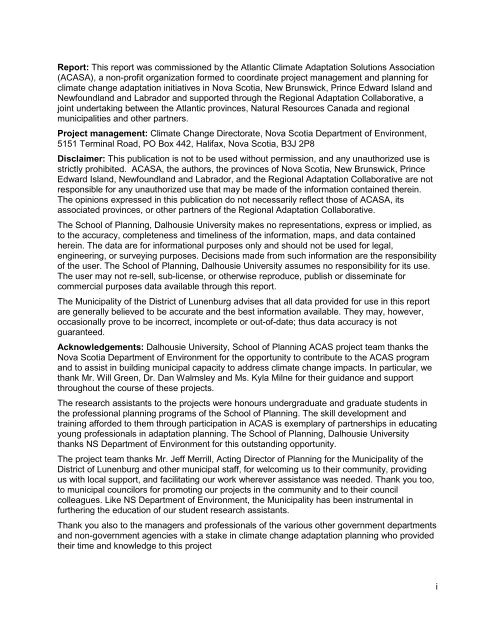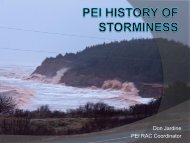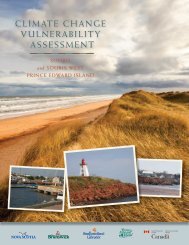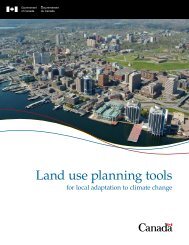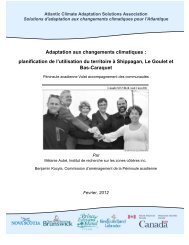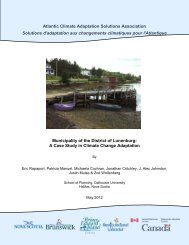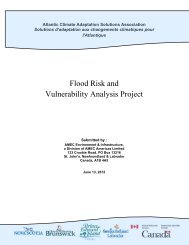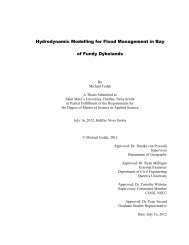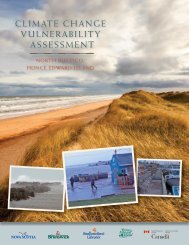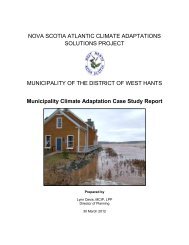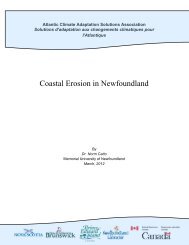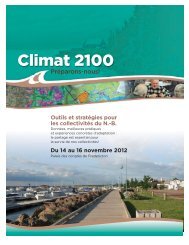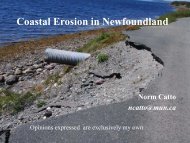Lunenburg Part 2 - Section 5 - Social Vulnerability - August 30.pdf
Lunenburg Part 2 - Section 5 - Social Vulnerability - August 30.pdf
Lunenburg Part 2 - Section 5 - Social Vulnerability - August 30.pdf
Create successful ePaper yourself
Turn your PDF publications into a flip-book with our unique Google optimized e-Paper software.
Report: This report was commissioned by the Atlantic Climate Adaptation Solutions Association<br />
(ACASA), a non-profit organization formed to coordinate project management and planning for<br />
climate change adaptation initiatives in Nova Scotia, New Brunswick, Prince Edward Island and<br />
Newfoundland and Labrador and supported through the Regional Adaptation Collaborative, a<br />
joint undertaking between the Atlantic provinces, Natural Resources Canada and regional<br />
municipalities and other partners.<br />
Project management: Climate Change Directorate, Nova Scotia Department of Environment,<br />
5151 Terminal Road, PO Box 442, Halifax, Nova Scotia, B3J 2P8<br />
Disclaimer: This publication is not to be used without permission, and any unauthorized use is<br />
strictly prohibited. ACASA, the authors, the provinces of Nova Scotia, New Brunswick, Prince<br />
Edward Island, Newfoundland and Labrador, and the Regional Adaptation Collaborative are not<br />
responsible for any unauthorized use that may be made of the information contained therein.<br />
The opinions expressed in this publication do not necessarily reflect those of ACASA, its<br />
associated provinces, or other partners of the Regional Adaptation Collaborative.<br />
The School of Planning, Dalhousie University makes no representations, express or implied, as<br />
to the accuracy, completeness and timeliness of the information, maps, and data contained<br />
herein. The data are for informational purposes only and should not be used for legal,<br />
engineering, or surveying purposes. Decisions made from such information are the responsibility<br />
of the user. The School of Planning, Dalhousie University assumes no responsibility for its use.<br />
The user may not re-sell, sub-license, or otherwise reproduce, publish or disseminate for<br />
commercial purposes data available through this report.<br />
The Municipality of the District of <strong>Lunenburg</strong> advises that all data provided for use in this report<br />
are generally believed to be accurate and the best information available. They may, however,<br />
occasionally prove to be incorrect, incomplete or out-of-date; thus data accuracy is not<br />
guaranteed.<br />
Acknowledgements: Dalhousie University, School of Planning ACAS project team thanks the<br />
Nova Scotia Department of Environment for the opportunity to contribute to the ACAS program<br />
and to assist in building municipal capacity to address climate change impacts. In particular, we<br />
thank Mr. Will Green, Dr. Dan Walmsley and Ms. Kyla Milne for their guidance and support<br />
throughout the course of these projects.<br />
The research assistants to the projects were honours undergraduate and graduate students in<br />
the professional planning programs of the School of Planning. The skill development and<br />
training afforded to them through participation in ACAS is exemplary of partnerships in educating<br />
young professionals in adaptation planning. The School of Planning, Dalhousie University<br />
thanks NS Department of Environment for this outstanding opportunity.<br />
The project team thanks Mr. Jeff Merrill, Acting Director of Planning for the Municipality of the<br />
District of <strong>Lunenburg</strong> and other municipal staff, for welcoming us to their community, providing<br />
us with local support, and facilitating our work wherever assistance was needed. Thank you too,<br />
to municipal councilors for promoting our projects in the community and to their council<br />
colleagues. Like NS Department of Environment, the Municipality has been instrumental in<br />
furthering the education of our student research assistants.<br />
Thank you also to the managers and professionals of the various other government departments<br />
and non-government agencies with a stake in climate change adaptation planning who provided<br />
their time and knowledge to this project<br />
i


